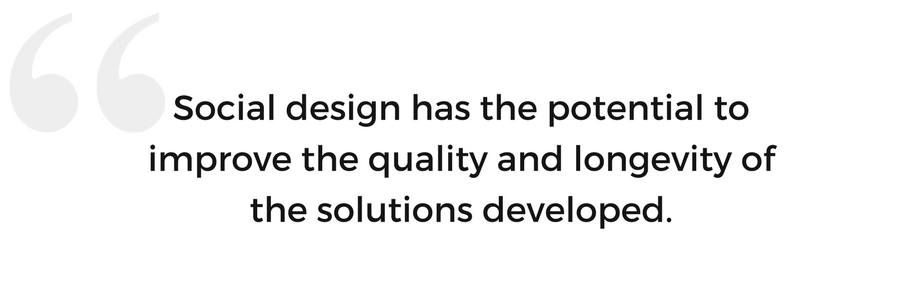In my last post, I wrote about the strong conviction that a growing number of funders, practitioners, evaluators and designers have – that social design is the most effective method for developing new systems, programs, services and interactions that will solve the major challenges of humanity. I also mentioned that we don’t yet have a concrete or evidence-based way to measure the difference it makes.
However, at the end of January in New York City, for the first time ever, we convened a diversely remarkable community of people to talk about just this: how to measure the impact of social design. By “diversely remarkable” we mean professional designers of all stripes, corporate leaders, monitoring and evaluation executives, NGO and nonprofit organizations and representatives from the Robert Wood Johnson, Gates and Rockefeller foundations. By “social design,” we mean the application of design methodologies to the solution of complex human problems.
 It’s safe to say that the roughly two hundred and fifty people who came did so for a combination of two reasons. First, because of their belief that social design has the potential to improve the quality and longevity of the solutions developed, and second, because no one has cracked the nut of measuring exactly how much, where or when. And (thanks for letting me sneak in a third) because we all agree that we need to know that in order to scale and improve it.
It’s safe to say that the roughly two hundred and fifty people who came did so for a combination of two reasons. First, because of their belief that social design has the potential to improve the quality and longevity of the solutions developed, and second, because no one has cracked the nut of measuring exactly how much, where or when. And (thanks for letting me sneak in a third) because we all agree that we need to know that in order to scale and improve it.
We heard stories of how social design is being used – and measured – in built environments and in transforming the culture of a venerable corporation. How it’s being used to improve the decisions of people with health challenges and to measure the effectiveness of products – not just how they work, but whether they’re being used. And many more.
What’s next is a deeper investigation into how to measure social design. This will include how it’s understood in different industries, where it’s being applied, what “good” looks like, and tools and templates for measuring it.
In addition to the short film above that recaps the event, videos of individual speakers can be found here, and if you’d like to learn more about where this effort is going, contact us here.



